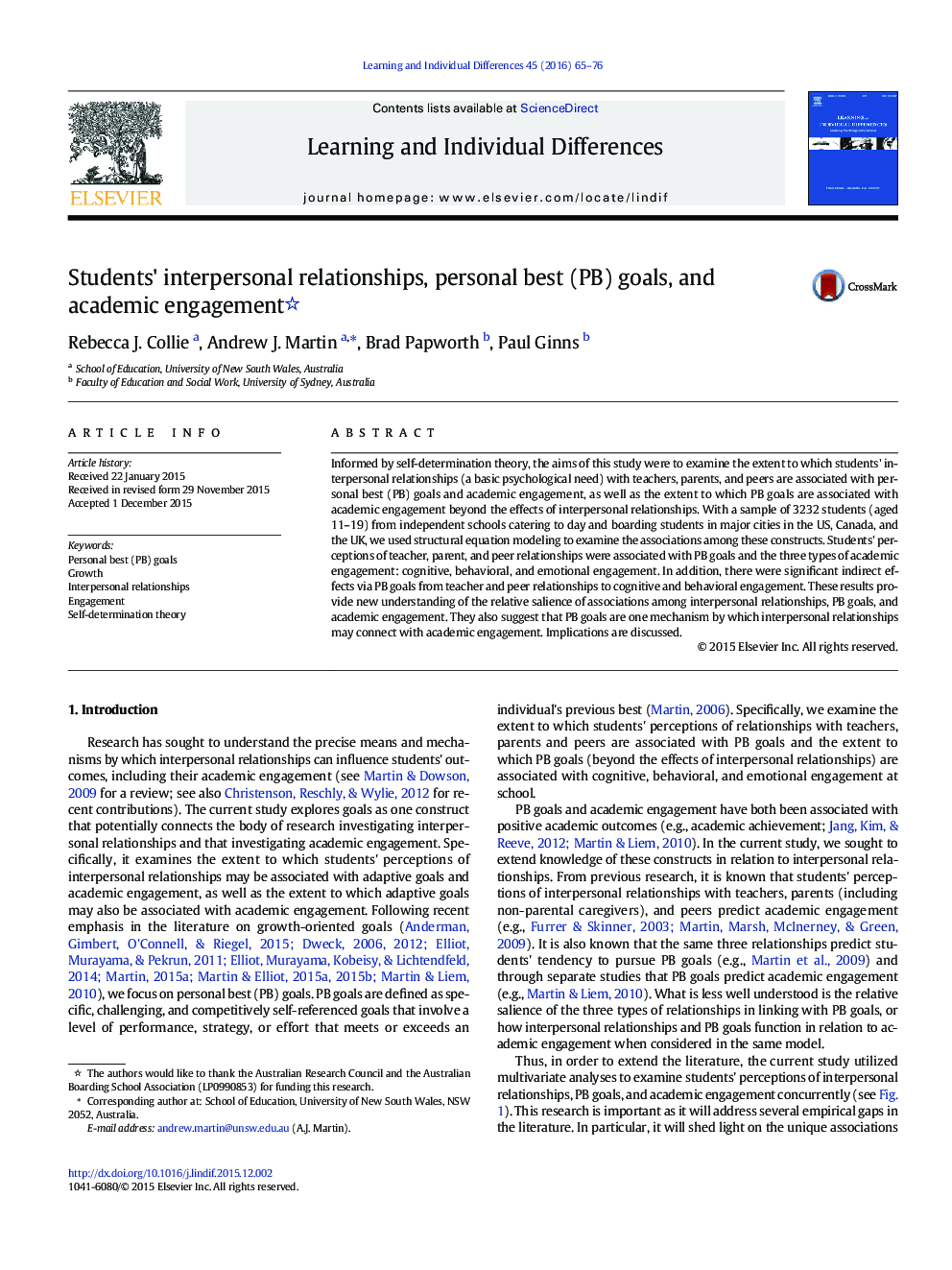| Article ID | Journal | Published Year | Pages | File Type |
|---|---|---|---|---|
| 364503 | Learning and Individual Differences | 2016 | 12 Pages |
•We examined students' interpersonal relationships with teachers, parents, and peers.•We also examined students' personal best (PB) goals and academic engagement.•Students' interpersonal relationships were associated with PB goals and engagement.•PB goals mediated how interpersonal relationships were associated with engagement.
Informed by self-determination theory, the aims of this study were to examine the extent to which students' interpersonal relationships (a basic psychological need) with teachers, parents, and peers are associated with personal best (PB) goals and academic engagement, as well as the extent to which PB goals are associated with academic engagement beyond the effects of interpersonal relationships. With a sample of 3232 students (aged 11–19) from independent schools catering to day and boarding students in major cities in the US, Canada, and the UK, we used structural equation modeling to examine the associations among these constructs. Students' perceptions of teacher, parent, and peer relationships were associated with PB goals and the three types of academic engagement: cognitive, behavioral, and emotional engagement. In addition, there were significant indirect effects via PB goals from teacher and peer relationships to cognitive and behavioral engagement. These results provide new understanding of the relative salience of associations among interpersonal relationships, PB goals, and academic engagement. They also suggest that PB goals are one mechanism by which interpersonal relationships may connect with academic engagement. Implications are discussed.
